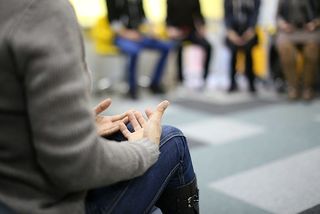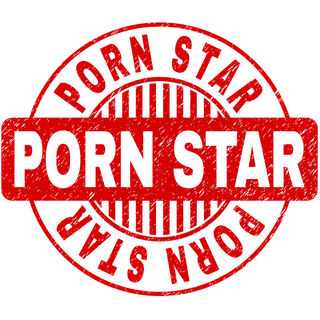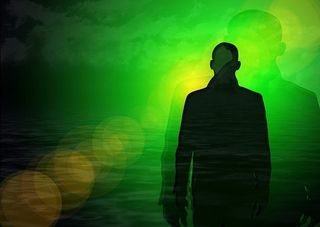Sex
From Sex Addiction Therapist to Porn Star
One man's extraordinary journey.
Posted April 16, 2020 Reviewed by Kaja Perina

Eight years ago, Daniel became a therapist working to help people try to control their sexual behaviors, resist the urge to masturbate or watch porn, and not cheat on their spouses. Today, he is still a therapist, but he is also now a porn star and is exploring a new model of sexual acceptance to help his clients in therapy.
Daniel is not just a figment of my fevered imagination. I’ve changed names and details in order to protect his privacy. Daniel believes he will come out publicly at some point, and this article is a part of that process. But for now, he’s interested in telling his story and exploring what his journey says about the therapy industry and his own journey through his sexuality.
I first heard about Daniel from friends in the adult film industry: “This guy is a porn star. AND he’s a therapist.” “Still?” I asked. There are several performers who became therapists after they retired from the film industry. A few months ago, this article about a therapist who is also a porn performer piqued my interest. But, Jet Setting Jasmine came to a nontraditional model of therapy practice after she had already embraced an alternative sexual lifestyle and adult performance. In contrast, Daniel worked for many years as a traditional therapist, in a field which is highly sexually conservative, before he finally broke out into public exploration of his sexuality. When I contacted Daniel, through his real-life identity, he was interested but anxious to discuss how this extraordinary journey had occurred, changing both him and the way he does therapy.
“I’m so nervous,” he said. “My palms are sweating,” Daniel told me, during our first interview. “I’ve never had these parts of my life collide.” Daniel is a handsome man with short hair, whose figure and sexual prowess has let him leap to stardom in the gay porn world in just the past two years. He looks like the prototypical gay porn star, but he talks like a seasoned therapist, with a deep and profound level of self-awareness.

“I got sober from drugs and alcohol when I was younger, and I started looking for what I was going to do for the rest of my life. I got my degree, and then got a job working as a sex addiction counselor. I’d never really been taught much about it, but I liked working with these kinds of clients. I understood their pain and I wasn’t afraid of it.” Daniel had always known he was gay, and accepting his homosexuality was never really a challenge. As he worked as a therapist and was trained in working with sexual behaviors, he was in a monogamous relationship with his long-term partner. “We lived the gay version of the heterosexual white-picket-fence life.” But over time, Daniel found himself chafing with how he was trained to address sexuality in therapy.
“At some level, I never really bought 100% into the sex addiction model. But, I never knew there were other models for helping people who were struggling with sexual behaviors.” As a therapist, Daniel saw the field begin to change as ministers and pastors started to be certified to work with sexual behaviors, without any clinical or mental health degree. “All of a sudden, there were all these people with degrees in divinity, who were saying things like ‘masturbation is always unhealthy,’ or ‘all porn stars are exploited and damaged.’” These things felt wrong for Daniel as he looked at his clients and himself. He struggled with the blend of sexual ignorance and sexual absolutes that were promoted as therapeutic. “Sex isn’t a binary problem, where you can just say ‘don’t do it.’ The standard for ‘sexual sobriety’ just isn’t workable or healthy for most people.” Fellow Psychology Today blogger Joe Kort has written about this issue as well, and how it contributed to his own decision to change the way he treated sexuality, both for his clients and himself.
Daniel found that he was far more comfortable being a person in the room with his clients and joining with them as opposed to telling them how to live their sexual lives. “All I saw was my clients failing in pain, hating themselves, trying to fit themselves into a lifestyle that was contrary to their nature.” At the same time, Daniel was realizing things about his own nature and that the white-picket-fence life of monogamy didn’t fit. “I questioned whether I had sexual problems myself. I’d never thought that before. But I was starting to accept that I was interested in sex in ways that I’d been taught were unhealthy.”
Within one very challenging year, Daniel lost a close family member, his relationship ended, and he contracted HIV. “It changed my outlook on life and made me realize that my life is mine and no one else’s and that at the end of the day, when I’m six feet under, it won’t matter how I lived my life … so what am I going to do, live in fear and approval-seeking? Or live my true self? I opted for the latter.”
Daniel’s former colleagues in sex addiction treatment would all surely look at his getting HIV as a consequence of unhealthy sexuality or even as a divine punishment. “But for me, becoming HIV positive was incredibly liberating. At first, I was traumatized, because I thought I was going to die (as I was taught to think). But as the dust settled, I came to realize that I had a LOT of preconceived ideas about sex and sexuality and I was freed from the idea that I was going to die if I f*cked the wrong person. This had a profound impact on me. It was then, as I started to become aware of the importance of tribes and community, that I came out of my sexual shell. I am actually incredibly grateful for my HIV diagnosis, I’ve learned so much about the impact of stigma and shame, both on myself and my clients. It’s radically changed both the way I live and the way I work in therapy.”

Daniel’s new tribe, as he explored single, gay, HIV positive life in New York City, included men who were not only nonmonogamous but performing in porn. As he explored sexuality with his friends, they invited him to perform in porn with them. “The first time I had sex on camera with one of my friends, I said they couldn’t show my face. But afterwards, I felt weird about it, like I was ‘half a man,’ and decided that the next time, I would accept my face, and myself.” The next time, Daniel not only showed his face but performed with some of the most popular men in porn, and his own career in porn began to explode, which took even him by surprise.
Daniel has a new partner, who has been a companion with him in this journey. “On our third date, I told him I didn't want to be monogamous, and that if that didn’t work, we could be friends but not partners.” They’ve been together now for years, and are totally honest and open with each other about their lives, including sex with other people. “We share our adventures with each other because we want to, not because we have to.”

Daniel’s newfound sexual life is healthy in ways that he never could have imagined. He feels at peace in his sexuality, in a way he never before experienced. By what he was taught years ago, he would be seen as unhealthy, engaging in destructive, out-of-control behaviors, but he has now grown to accept his adventurous sexual self, finding sexual health in how he lives this life, not just what he does with other people. “Most of the things in my sex life right now would have been considered unhealthy. Things like having multiple partners, recording yourself having sex, anal sex, performing in porn, sex outside marriage, even using sex toys would all have been considered sexually unhealthy. But here’s the thing, when I look at myself, I’m living in integrity with myself. I’m not being dishonest with my partner, I’m not being secretive or ashamed. I'm not doing anything illegal or unethical. I’m not out of control of my sexuality or my life."
Daniel does worry about how his sex life and career in porn can impact his work as a therapist. He struggles sometimes, distressed over what he feels like is an impossible choice: “I’m in the process of figuring out how these things go together in my life, being a therapist, and living the sexual life I choose. I know what’s true for me—I love being a therapist, and I love making adult content. Why should these things have to be mutually exclusive? And the distress I feel is because of all those shaming lessons I learned about sex from my colleagues, from our society, and the work I was doing. The work I’m having to do now, to relieve that distress, is shedding those lessons.”

Now, Daniel is applying these new lessons to not only his life but to his work with clients. “I no longer try to force them to fit into somebody else’s model of sex. Instead, I try to help them figure out what they want their sexual model to be and how to create a life that integrates that framework.” Daniel no longer identifies as a therapist specializing in sex addiction and is now navigating ways to help clients who struggle with their sexuality, focused on reducing shame and increasing their self-acceptance.
In Part Two of my interview with Daniel, we explore what it’s like to be a therapist by day and a porn star by night, and how he is trying to navigate these complex issues and remain an ethical, committed, and effective therapist.




